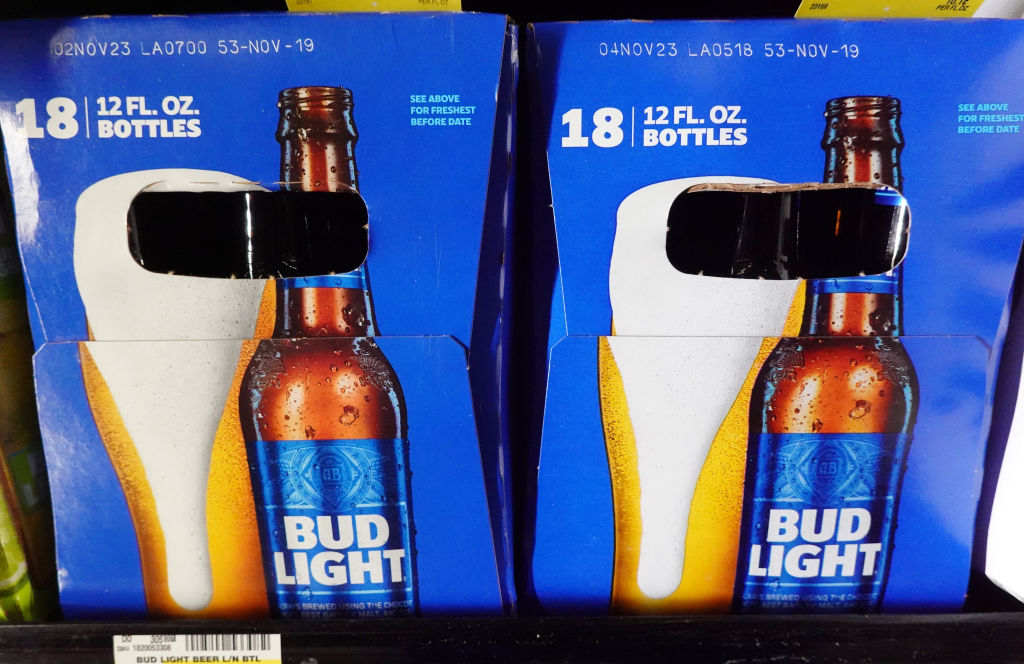Anheuser-Busch, the parent company of Bud Light, finds itself in a state of upheaval as two key marketing executives have exited the company in the wake of a brewing controversy.
A report from the Daily Caller confirmed the departures, revealing a troubling turn of events at the beverage giant.
Group Vice President for Marketing Daniel Blake and Vice President of Bud Light Marketing Alissa Heinerscheid are no longer part of the Anheuser-Busch team.
Text messages obtained by the Daily Caller shed light on the situation, with a regional head of marketing stating that both executives are now “gone gone.” However, due to legal concerns, the company opted to refer to their departure as a “leave of absence” rather than using the word “fire” publicly.
The decision to part ways with Heinerscheid stemmed from fears of a backlash from wholesalers, a source within the company disclosed to the Daily Caller. The source explained that failure to remove her from her position would have caused significant turmoil among the leadership ranks.
While acknowledging Blake’s positive contributions, the insider also noted his involvement in hiring Heinerscheid, placing some blame on him.
Insiders revealed that wholesalers were informed during face-to-face conversations that both executives had left the company for good. Anheuser-Busch has already reassigned their direct reports to new individuals under the guidance of a new head of marketing.
The leadership shakeup is directly related to a boycott triggered by an ill-advised partnership with transgender influencer Dylan Mulvaney earlier this year.
The brand featured personalized beer cans with Mulvaney’s face and released cans adorned with rainbow designs and the slogan “celebrate everyone’s identity,” featuring various pronouns. These moves drew widespread condemnation from their largely conservative consumer base.
Initially, Bud Light staunchly defended its partnership with Mulvaney, but later issued a lukewarm apology to its loyal customer base. Anheuser-Busch InBev CEO Brendan Whitworth stated that their intention was never to contribute to divisive discussions, emphasizing their commitment to bringing people together through the enjoyment of their products.
Heinershceid was widely viewed as the force behind the partnership. She claimed to have infused the brand with a sense of “belief” in the importance of evolving and embracing inclusivity. According to her, this meant shifting the tone and creating an inclusive campaign that exuded brightness and appealed to both men and women.
Furthermore, she openly criticized Bud Light’s previous branding efforts, referring to them as a lingering hangover. She emphasized the need for a fresh approach, distancing the brand from what she thought was fraternity-oriented and out-of-touch in its humor.
However, Heinerscheid faced backlash when her remarks gained widespread attention and critics accused her of hypocrisy.
Photographs from her time as a student at Harvard surfaced, showing her engaging in activities that mirrored the “fratty” culture she had disavowed.
These images, including her participation in a campus scavenger hunt where condoms were blown up like balloons and her involvement in a 2006 “boozefest,” drew mockery and further undermined her credibility.
The fallout from the Bud Light-Mulvaney partnership had a profound impact on Anheuser-Busch, resulting in a staggering loss in value.
With Heinersheid and Blake gone from the company, it will be interesting to see if the brand can recover or if the damage that has already been done is irreversible.
This article appeared originally on The Western Journal.

























 Continue with Google
Continue with Google